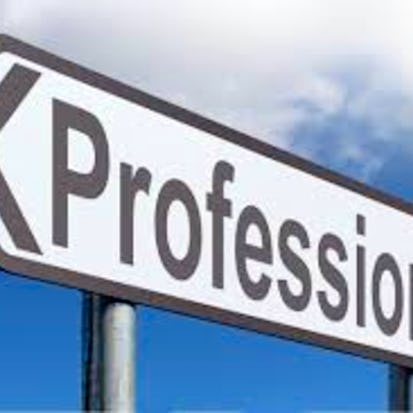- Level Professional
- Duration 27 hours
- Course by Utrecht University
-
Offered by

About
In this course we aim to provide you with an insight into how recent societal and technological developments have changed the work of professionals in a variety of professional domains and how this in turn affects professionalism. The course highlights core themes, discusses main insights and theories, raises questions and presents cases, and links insights to practical challenges in various professional domains. It provides a state of the art assessment of professionalism in transition, by looking back and looking forward. It supports target audiences in dealing with professional services and professionals. The programme has an interdisciplinary approach and will focus on different levels: At macro level the course presents a historical and sociological view on past and future changes in professions, focused on: • how do professional fields develop? • how is professionalism promoted and encouraged among professionals? • how do professional fields control and empower their members? At meso level the course presents an organisational view on changes within professional partnerships and institutions, focused on the following questions: • how do norms and routines affect professionals and professional work? • how do professionals organise and lead professional work? At micro level a psychological perspective on changing work and a changing work environment of professionals is presented. This part focuses on the following questions: • how do professionals deal with work pressure and remain motivated? • which competencies do professionals require to be able and capable to deliver? We invite you to join us and increase your understanding of the topics addressed in this course through lectures, interviews, animations, readings and peer interaction.Modules
1.1 Introduction
1
Videos
- 1.1.1 Welcome to the course!
3
Readings
- 1.1.2 An introduction to the MOOC 'Professionalism in an era of change'
- 1.1.3 Week 1: Professionals in transition
- 1.1.4 Short survey
1.2 A historical view
2
Assignment
- 1.2.3 Identifying the professional
- 1.2.6 The professionalisation of everyone?
2
Videos
- 1.2.2 How to identify a professional
- 1.2.5 Interprofessional competition
2
Readings
- 1.2.1 Introduction
- 1.2.4 The rise of professionalism
1.3. A sociological view
1
Videos
- 1.3.2 Patterns of societal change
2
Readings
- 1.3.1 Introduction
- 1.3.3 Consequences of societal change
1.4. Tying it together
1
Peer Review
- 1.4.1 Practical Relevance
1
Discussions
- 1.4.2 ‘Professions in transition’: share your thoughts
1
Readings
- 1.4.3 Wrapping it Up
2.1 Introduction
1
Videos
- 2.1.2 A case study: Meet the professional
1
Readings
- 2.1.1 Week 2: Control and empowerment of professionals
2.2 The organisation of professional markets
1
Assignment
- 2.2.4 Becoming a professional
1
Peer Review
- 2.2.5 Segmentation and differentiation
2
Videos
- 2.2.2 Inclusion and exclusion
- 2.2.3 Loyalty and identity
1
Readings
- 2.2.1 Introduction
2.3 The paradox of control and empowerment
1
Assignment
- 2.3.4 Bureaucracy and professional autonomy
1
Videos
- 2.3.3 Bureaucracy and professional autonomy
2
Readings
- 2.3.1 Introduction
- 2.3.2 Understanding paradoxes
2.4 Tying it together
1
Peer Review
- 2.4.2 Integration
1
Discussions
- 2.4.3 Share your thoughts
2
Readings
- 2.4.1 Reflection on case study – meet the professional – Merel Langelaar - Veterinarian
- 2.4.4 Wrapping it up
3.1 Introduction
1
Readings
- 3.1.1 This week
3.2 Expertise development and standardization of professional performance
1
Assignment
- 3.2.5 Expertise development and knowledge dialectics
2
Videos
- 3.2.2. Expertise development
- 3.2.3 Transfer of tacit knowledge
2
Readings
- 3.2.1 Introduction
- 3.2.4 Embracing dualities by rethinking information processing
3.3 Standardization of professional performance
1
Peer Review
- 3.3.3 Evaluation of existing norms and routines in your own professional context
1
Videos
- 3.3.2 Professional norms and work routines
2
Readings
- 3.3.1 Introduction
- 3.3.4 Incompatibilities between managerial principles, policies and professional norms and routines - some examples
3.4 Tying it together
1
Peer Review
- 3.4.1 Integration
1
Discussions
- 3.4.2 Share your thoughts
1
Readings
- 3.4.3 Wrapping it up
4.1 Introduction
1
Readings
- 4.1.1 Week 4: Organisation and leadership of professional work
4.2 Professional organisations
1
Assignment
- 4.2.3 New ways of organising professional work
1
Peer Review
- 4.2.6 Balancing conflicting demands
2
Videos
- 4.2.4 The clash between organisational and occupational logics: a practical example
- 4.2.5 Balancing conflicting demands
2
Readings
- 4.2.1 Introduction
- 4.2.2. About managers and professionals when times are changing
4.3 Hybrid professionalism
1
Assignment
- 4.3.3 Towards a new model of professionalism
3
Videos
- 4.3.2 Towards a new model of professionalism
- 4.3.4 Hybridisation of professional work
- 4.3.5 The benefits of active coping behaviour
1
Readings
- 4.3.1 Introduction
4.4 Tying it together
1
Peer Review
- 4.4.1 Integration
1
Discussions
- 4.4.2 Share your thoughts
1
Readings
- 4.4.3 Wrapping it up
5.1 Introduction
1
Readings
- 5.1.1 Week 5: Professional motivation and well-being
5.2 A work psychological perspective
1
Assignment
- 5.2.4 JD-R and personal resources
1
Videos
- 5.2.3 The role of personal resources in mental well-being
2
Readings
- 5.2.1 Introduction
- 5.2.2 A proper balance between job demands and job resources
5.3 Improving motivation and well-being
1
Assignment
- 5.3.4 Engaging leadership and challenging and hindering demands
1
Videos
- 5.3.3 Improving professionals' motivation
2
Readings
- 5.3.1 Introduction
- 5.3.2 Supporting well-being and performance through engaging leadership
5.4 Tying it together
1
Peer Review
- 5.4.1 Integration
1
Discussions
- 5.4.2 Share your thoughts
1
Readings
- 5.4.3 Wrapping it up
6.1 Introduction
1
Videos
- 6.1.2 Meet the professional - General practitioner
1
Readings
- 6.1.1 Week 1: Lifelong learning
6.2 Empowering professionals to a new concept of professionalism
1
Assignment
- 6.2.4 Professionalism reconfigured
1
Peer Review
- 6.2.8 Application to your professional context
4
Videos
- 6.2.2 Adapting to new demands: Professionalism reconfigured
- 6.2.3 Adapting to new demands: Organising professionalism in more detail
- 6.2.5 Adapting to new demands: On promoting leadership in a large academic hospital
- 6.2.6 Adapting to new demands: On the teaching of frontline leadership
2
Readings
- 6.2.1 Introduction
- 6.2.7 Adapting to new demands: what recent research tells us
6.3 How to prepare future professionals
1
Discussions
- 6.3.5 Share your thoughts
3
Videos
- 6.3.2 Zooming out: Reflections on societal change and implications for professional services
- 6.3.3 The T-shaped professional
- 6.3.4 Educationg for a collaborative workforce: interprofessional education
1
Readings
- 6.3.1 Introduction
6.4 Tying it together
1
Peer Review
- 6.4.3 Integration
1
Discussions
- 6.4.4 Share your thoughts
2
Readings
- 6.4.1 Reading: Reflection on case study
- 6.4.2 A course overview
6.5 Course closure
2
Readings
- 6.5.1 Acknowledgements
- 6.5.2 Final survey
Auto Summary
Join "Professionalism in an Era of Change" to explore how societal and technological shifts are reshaping professional domains. This interdisciplinary course, led by expert instructors, delves into historical, sociological, organizational, and psychological perspectives on professionalism. With a focus on core themes, theories, and practical challenges, it offers a comprehensive assessment of professionalism in transition. Ideal for professionals seeking to adapt and thrive, the course features engaging lectures, interviews, animations, readings, and peer interactions. Available on Coursera with flexible subscription options, this course promises to enhance your professional development.

Nicole Mastenbroek


